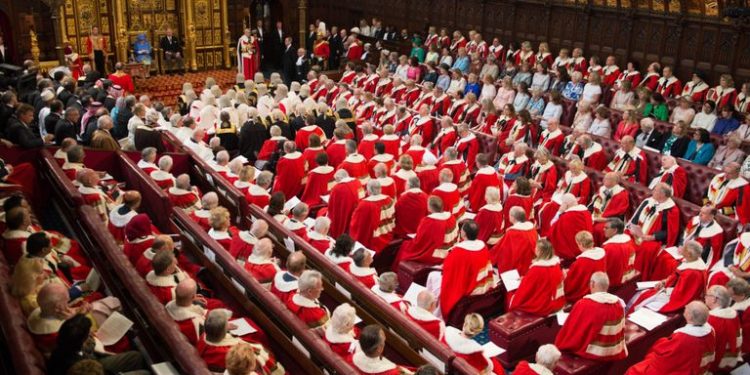London: Peers in the House of Lords have clashed over the relevance of the so-called ‘cricket test’ of loyalty, aimed at immigrants to Britain, ahead of the big India versus Pakistan World Cup clash in Manchester Sunday.
Lord Norman Tebbit, former Conservative Party chairman and the architect of the concept in the 1990s, has claimed that the test of immigrant loyalty to the England team over teams from their countries of origin is far from outdated, as claimed by Indian-origin peer Lord Jitesh Gadhia recently.
“The test isn’t outdated. It still asks of those crowds: who is your priority? The country you have come to, or the country from which you came,” Tebbit told ‘The Financial Times’.
“It still gives me a bit of concern to the degree at which descendants of people who came here are not yet quite certain that their roots go down deeper here,” he said.
Gadhia challenged this characterisation, which he says unfairly questions the loyalties of British Asians, the largest group of cricket fans who have bought the bulk of the tickets on sale for the ongoing cricket World Cup.
“British Asians are amongst the most proudly patriotic citizens I know. It is wrong to question their loyalty,” said Gadhia.
“An affinity for the ‘mother country’ should not threaten us if it is combined with an appreciation and respect for British laws and values,” he said.
He pointed to the ‘sons of two Pakistani bus drivers’ – UK home secretary Sajid Javid and London Mayor Sadiq Khan – as a symbol of ‘multicultural diversity’.
“Large swathes of our nation have benefited from the entrepreneurial drive of the Indian and Pakistani communities. Bringing a strong family business ethos, Asians have spurred urban regeneration and revived countless high streets, providing the backbone for multiple professions, including the National Health Service (NHS) — and make a massive cultural contribution to food, music, cinema, dance and fashion,” said the investment banker and peer.
The India versus Pakistan match at Old Trafford in Manchester on Sunday attracted half a million applications for just 25,000 tickets, bringing in thousands of fans from across South Asia and a worldwide television audience that could top 1 billion. But the vast majority of the crowd at the stadium will be from British Indian and Pakistani communities.
Gadhia noted: “This match demonstrates the power of sport in bringing countries together who have difficult diplomatic relations.
“British Indians and Pakistanis show that their love of cricket can help bridge divides across the boundaries of global diplomacy and national identity.”
According to the International Cricket Council (ICC), around 135,000 people have bought tickets for the World Cup. While nearly 50 per cent are supporters of the host nation England, 37 per cent have declared themselves fans of one of the five Asian nations in the tournament – India, Pakistan, Bangladesh, Sri Lanka and Afghanistan.
The India vs Pakistan match is billed as the biggest fixture of all the clashes, given the India-Pakistan political tensions that have prevented them from meeting on the cricket pitch elsewhere.
Bharat Army, the official Indian team fan club, has been organising a series of events leading up to the big game.
“We have 11,000 confirmed members from 23 countries around the world attending the tournament so the singing, dancing and dhol drumming that people expect from us will certainly be there,” said a spokesperson for Bharat Army, organisers of the mega “Bharat Ke Saath” concert in Manchester on the eve of the India-Pakistan game Saturday night.
VFS Global, the worldwide visa service provider, also confirmed big numbers from India for the World Cup.
“Our rough estimate is around 80,000 Indians may travel for the World Cup. This is based on India-UK travel trends and the previous numbers of Indians travelling for previous tournaments,” said Vinay Malhotra, Regional Group COO – Middle East, South Asia and China, VFS Global.
PTI






































